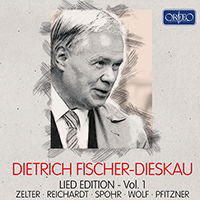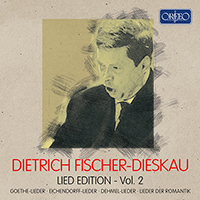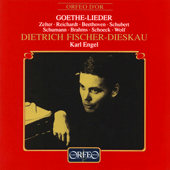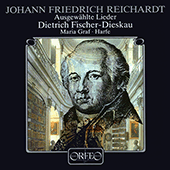
Johann Friedrich Reichardt (1752 - 1814)
The son of a distinguished lutenist, Johann Friedrich Reichardt was born in Königsberg and won an early reputation as a violinist and keyboard player, while also demonstrating ability as a lutenist. His training as a composer lacked consistency, but by the age of 23 he had succeeded in securing an appointment as Kapellmeister at the Berlin opera; this was under the patronage of Frederick the Great, whose successor, Friedrich Wilhelm II, he also served, losing favour for a time through his avowed republicanism after the French Revolution. Prolific as a composer, he nevertheless is remembered now more for his various writings, records of his travels throughout Europe and of the musical life that he encountered. He associated with leading writers of the time, although eventually aroused the hostility of Goethe and Schiller.
Stage Works
Reichardt won his position at Potsdam with a conservative opera, Le feste galanti, in the style of Graun favoured by Frederick the Great. His later operas reflected the influence of Gluck and explored the use of German and the newly developing genre of melodrama. He also wrote Singspiel and incidental music, including a notable interpretation of Macbeth.
Vocal and Choral Music
A prolific composer of songs, Reichardt left some 1,500 Lieder, settings of verse by some 125 poets which were an influence on Schubert. His choral music includes a number of cantatas, psalm settings and motets.
Instrumental Music
Reichardt ’s composition of instrumental music reached its height in the 1770s and 1780s. His harpsichord concertos include works dedicated to C.P.E. Bach, who had earlier worked in Berlin, and to his first wife, Juliane Benda, daughter of the Berlin court musician Franz Benda. He also wrote violin concertos, symphonies and overtures. His chamber music includes a variety of trios and quartets, and for the harpsichord and then the piano he wrote a number of sonatas.



















